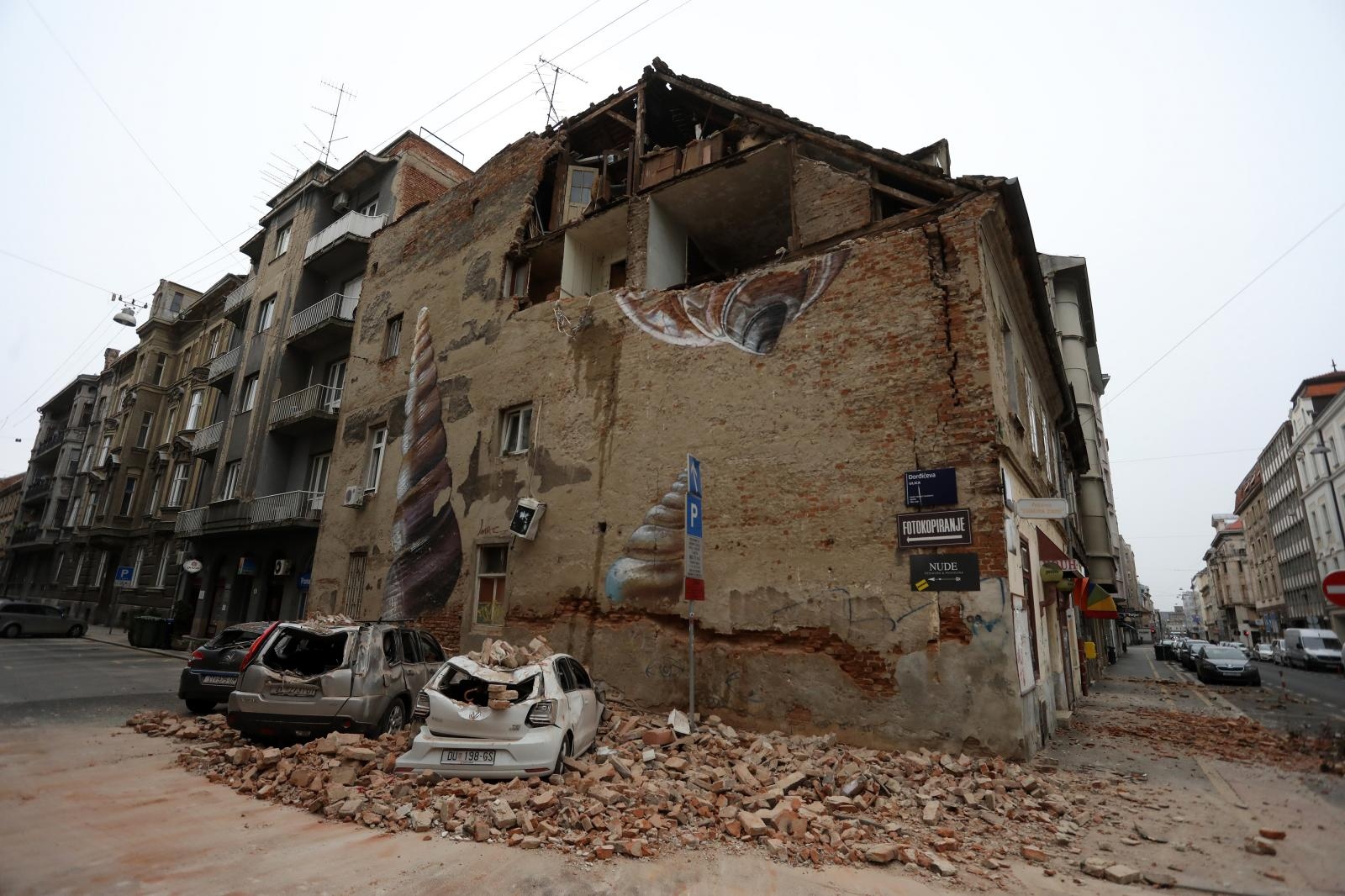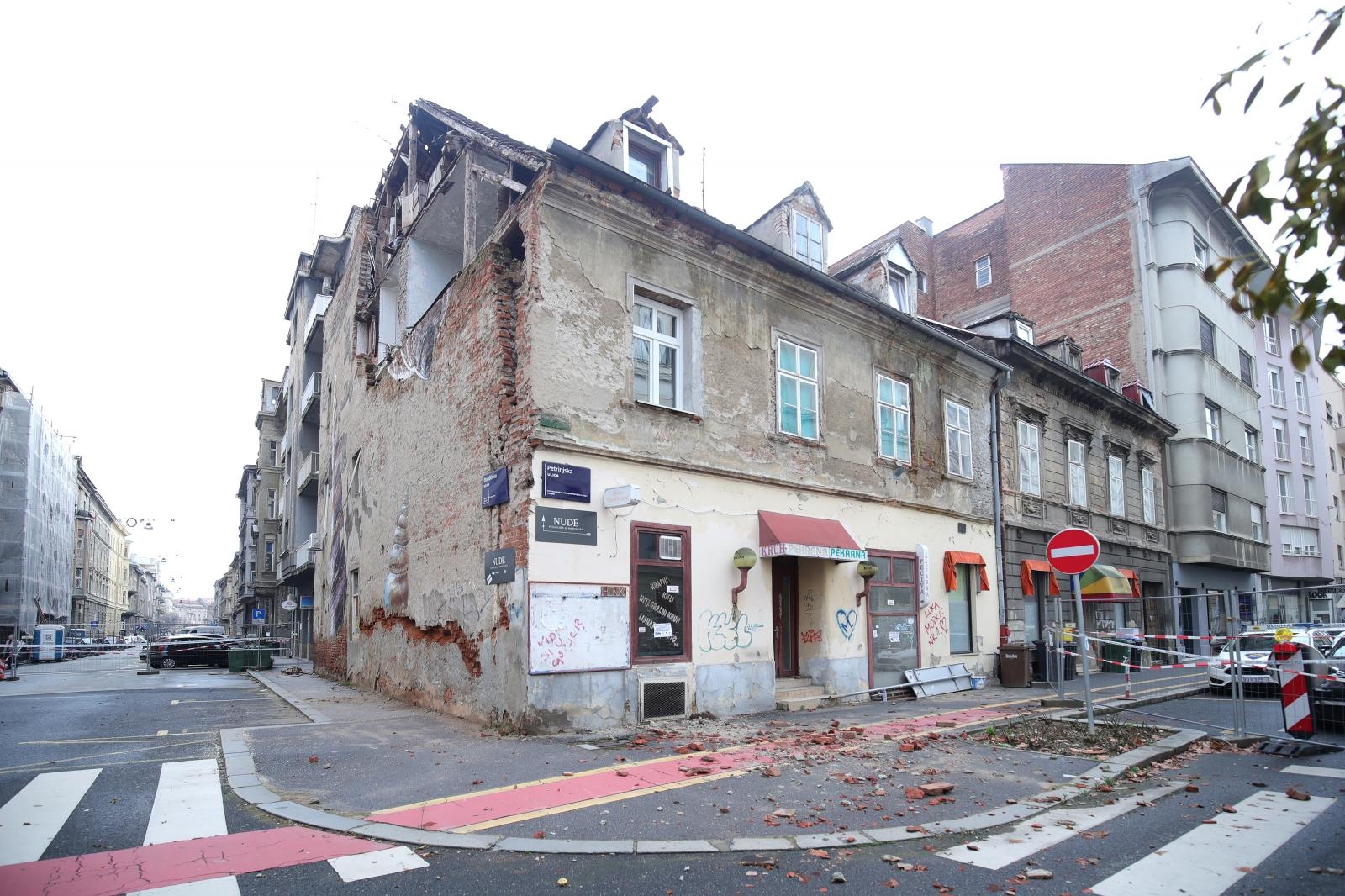March 21, 2021 - Every single person living in Zagreb can tell you their story of the potres of 2020. Here's mine, told through the lens of one building, on the corner of Đorđićeva and Petrinjska street.
Most people never want to live through a big earthquake. But, the thing you even more don't want to live through is an earthquake waking you up at 6:24, in your bed in a city of just under a million people, during the early days of a lockdown imposed because of the pandemic. Pandemic, mind you, of a brand new disease, one caused by the virus we know almost nothing about.
And that is exactly where we found ourselves on the morning of March 22nd, 2020. Now, that's not the first earthquake I've felt in my life, which was mostly spent in Zagreb. I remember one, back when I was a kid, sometime before the Homeland War of '91, when we all ran out to the streets as well. It wasn't nearly as bad as this one, but it was something I felt and remembered. Our region has seen much worse, with towns destroyed by the tectonic plates and their restlessness. But, the really big ones, we told ourselves, those happened in California or Japan!
The one that woke us up on the morning of March 22nd 2020 objectively wasn't a big one. I mean, it only took us 9 months to feel an even bigger one. But the one from March was scary because we were already scared. Scared of the virus, scared of the pandemic, scared of the reactions to the pandemic, scared of the unclear future. (As if the future is ever really clear)
Then, rapidly, one after another, many things happened: another earthquake half an hour later, we heard the news of one casualty, we saw that the top of the Zagreb Cathedral tower was gone, movement of people within Croatia was restricted and a symbol of the devastation of Zagreb became apparent. I don't know the order in which these events occurred; those days honestly feel like a blur now.
The building which turned into a symbol is not the one you'd expect, it's not the Cathedral. It's just an ordinary downtown building, located on the corner of Petrinjska and Đorđićeva streets. The only thing worth noticing about that building was the street art it had on its side. And, on March 22nd, what it looked like:

The only casualty of the earthquake was a child who died in Đorđićeva street. The Croatian media has repeatedly told us that the tragic event did not happen in this building. The building and its street art and the open sides were a whole different story.
We went through a lot since, the people and the city. There was a lot of clean-up in the immediate aftermath, still worried about the pandemic taking off insanely with the people spending so much time in close proximity (it didn't); the top of the second tower of the Zagreb cathedral coming down, feeling good about how we handled the pandemic during the spring, the parliamentary elections, the tourist season, feeling extremely bad about how we handled the pandemic during the late summer and the autumn, and then the heart-breaking earthquakes in the Petrinja region in the final days of last year. (A not-so-fun fact: if you're wondering if Petrinjska Street in Zagreb is named after the same Petrinja which was destroyed in the earthquakes: yes, it is)
In early 2021, as we were approaching the first anniversary of the Zagreb earthquakes, I needed to go to the city centre, and by chance, going by this building up the Petrinjska Street was the route I took. It's not like I haven't been there before, since the quake, it's just that I thought... something has happened. And then I saw it and I literally gasped. I wasn't even composed enough to take a photo of it, but this photo is what the building and the corner it's on look like today:

Fenced off, traffic not allowed through Đorđićeva at all, pedestrians not allowed anywhere near, with pieces of brick and roof tiles scattered around the building - as if the earthquake was a couple of days ago, and not a year ago!
Surprisingly, although 2020 was among the longest years of our lives, sometimes it does feel like the earthquake only just happened. So much of the city is still damaged, and the pandemic is making it harder to even figure out what is destroyed, lost, needs to be fixed or replaced - as we're not going to the city centre as much as we used to. 2020 seemed to last forever, but it lasting forever hasn't helped my hometown heal. Maybe 2021 will bring a new breath of optimism to the streets (and lives) that still need a lot of help.
For the latest travel info, bookmark our main travel info article, which is updated daily.
Read the Croatian Travel Update in your language - now available in 24 languages!


